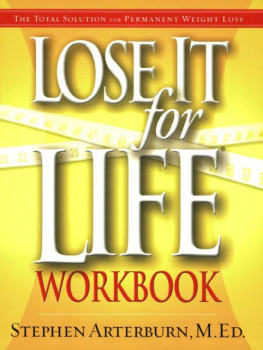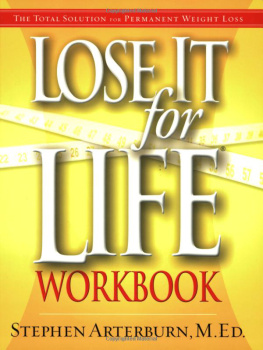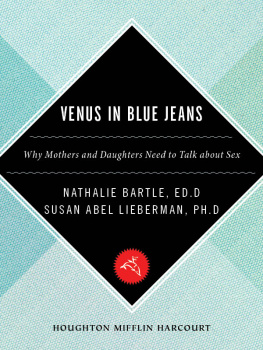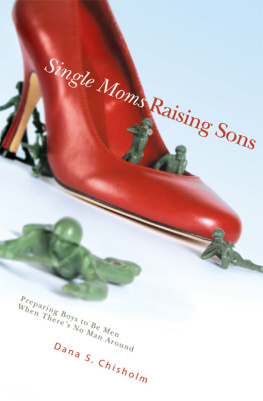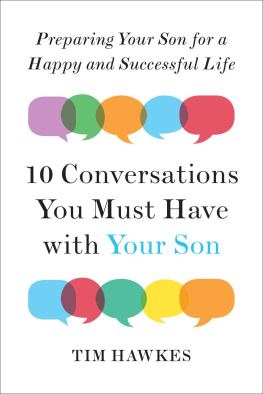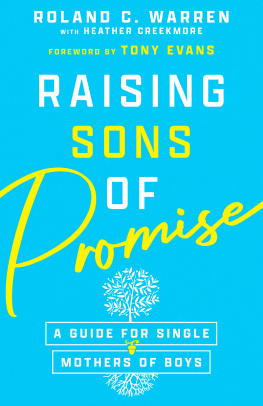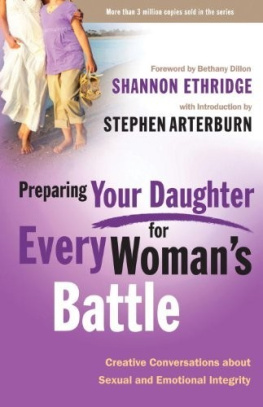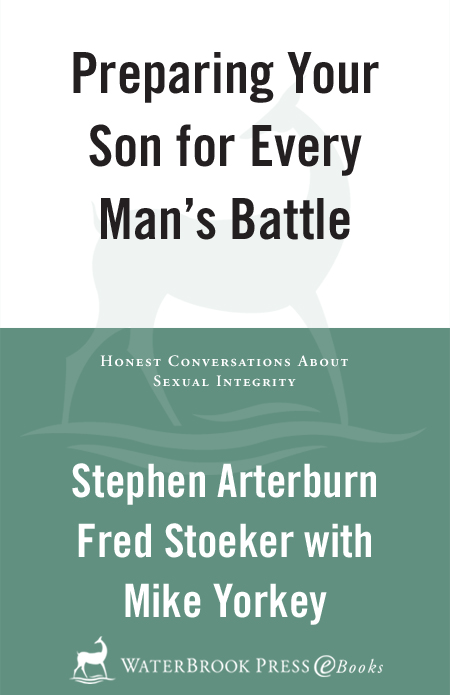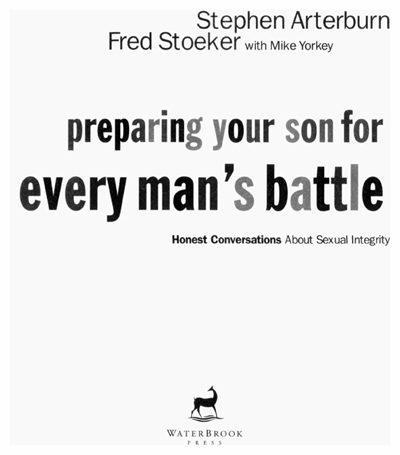foreword
(by Stephen Arterburn)
When I was in junior high, I felt like a loser. That was a very tough time for me, just as it is for most young people today. My daily goal was to not humiliate myself or look like the awkward, uncomfortable, pimply young man that I was. If I could get through a day of not saying something stupid or stumbling or having my voice crack in midsentence, then it was a good day. Even on my best days, though, I felt like a loser, and on one never-to-be-forgotten, very bad day, I definitely was one.
The horrific day started out on the massive turf of Kyle Field in College Station, Texas, home of the Texas Aggies. Somehow I had landed on our schools track team, and we were in town to compete in a big track meet. All morning my stomach was filled with butterflies, moths, bees, bats, and everything else that flutters. In the simple terms of my mother, I was a nervous wreck.
All morning I watched our teams embarrassment grow as my fears intensified. The shot-putters could not put, and they looked pretty shot. The pole-vaulters were all pole and little vault. The high-jumpers wore lead boots. We were pathetic. But worse than that, each dismal event drew us closer to the 440 relay, where I suspected I would become the focal point of all the earths negative attention.
I was the anchor, the one who is supposed to be the fastest runner. That I was the anchor still amazes me to this day and shows just how pitiful we were. I was full of dread that Id grip the baton, only to lose the race in a dead heat at the finish line. Playing the final moments over and over again in my head, I envisioned a last monumental push to the tape that would not be enough to win, whereupon I would collapse from exhaustion in the humiliation of defeat. This was my worst nightmare, but it did not happen. Instead, something far worse than my worst nightmare was about to unfold.
Our moment had finally come, and when the gun fired, I jumped as if I had been shot. Six runners burst from the blocks, and for about three glorious seconds, all looked evenly matched. But as each sprinter shifted into his highest gear, the grand humiliation began to build. Our first runner looked like he was jogging! Mister Slow Mo just could not get the glue off his shoes, and by the time he passed the baton, the other teams were halfway to the third leg of the race.
It kept getting worse. My teammates seemed drugged as I pleaded from my post, helplessly leaping, yelling, and flinging my arms, urging on the slowest, deaf relay team ever known to man.
Swoosh! My heart sank as the first runner blitzed by me. Then another swoosh, and then a third, fourth, and a fifth. Then I waitedand waited and waited. Come on! Come on! I shouted to our third runner, but he was still so far away he could not hear me. Still, I pleaded on, jiggling and grimacing until he finally stretched that baton toward my right hand. Snatching it, I turned my face resolutely toward the finish line only to see five rear ends break the tape just as I began.
So there I was, running all alone in what seemed like a two-hour dash to the finish. There would be no final, last-second lunge. I was given the baton too late to do anything but humiliate myself. I can still hear the laughter roaring as I finished the relay alone, and I can still see the fingers pointing at Loser Boy on display. I certainly didnt get through that day without embarrassing myself. I vowed that I would never run in the Dunce Bowl again, and I never did.
But while it was my last footrace, it was certainly not my last humiliation. The passing of the baton too late became the metaphor for my life. Every father passes a baton to his son in the generational relay, and my dad was no exception. He had stuffed that baton with Christian truths and moral principals, and he believed I would carry it well and build upon the heritage hed built.
But there was a problemhe passed it off too late. By the time he thought I was ready to receive it, much of my race was over, and the agony of defeat was already rooted in place. My old-fashioned. Texan father thought you became a man at age twenty-one, but he was sadly mistaken. The perils in our race toward manhood come much earlier than twenty-one years of age, and a late baton pass eliminates any real chance of winning.
Passing the baton is what Preparing Your Son for Every Mans Battle is all about. Your son needs the baton now. While a young man might have his first sexual experience at the age of sixteen or eighteen, he is developing thoughts and attitudes about that first sexual experience at the age of eleven or twelve. His preparation must begin and his questions must be answered during the early legs of the race to instill the confidence, integrity, and purity necessary to run well in the latter legs. We are thrilled with the opportunity to be your assistant coaches in this race.
You have to be careful, though. You may want to do more than hand your son the baton that your father passed to you. Unless you are one of the rare and fortunate men of our day, that baton you received was probably cracked and stained. If you have not done some serious work on your own character and have not allowed God to repair your soul, that baton is probably in no better shape than when it was handed to you. If you feel you need to do some work in that area, we hope you will seek out the other books in the Every Man series written just for you. Do you want to pass off something to your kids that far exceeds what you received from your father? Fred and I do. If you have that same desire, we think you are on the right track.
The effective father must pass along a baton that teaches his son how to delay gratification, take responsibility, and connect deeply with others, including God. When this happens, his son will become a man of character, someone who knows who he is, and someone who is ready to make a difference in fulfilling Gods mission for his life.
We have developed this book because we want to see the pattern of our lives reversed. We were equipped too late to be the young men that God would have loved for us to be, but it is not too late for your son. The book you are holding in your hands is the evidence that you want something better for him. We want that for your son too, and we stand with you as you stretch the baton his way. May God bless you as you run!
acknowledgments
Thanks to Steve Arterburn, an empathetic man who knows how to walk in anothers shoes and who knows how to walk his talk.
Thanks to Mike Yorkey. God was with us. Rogers and Hammerstein never had it so good!
Thanks to Gary Meyer and Dave Roe, men who understand the times and are raising boys to be real men in the face of it all.


